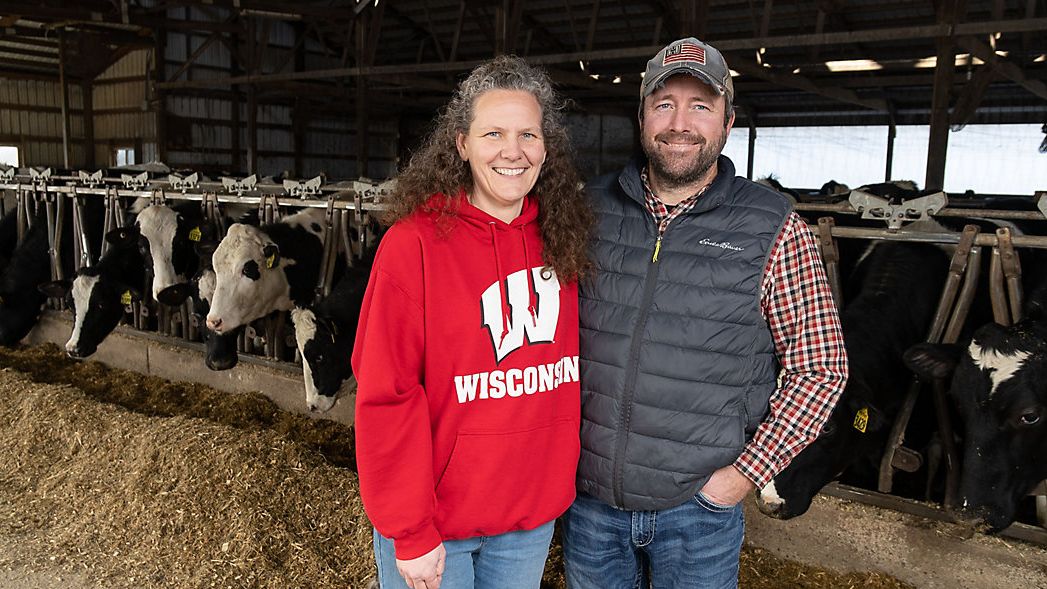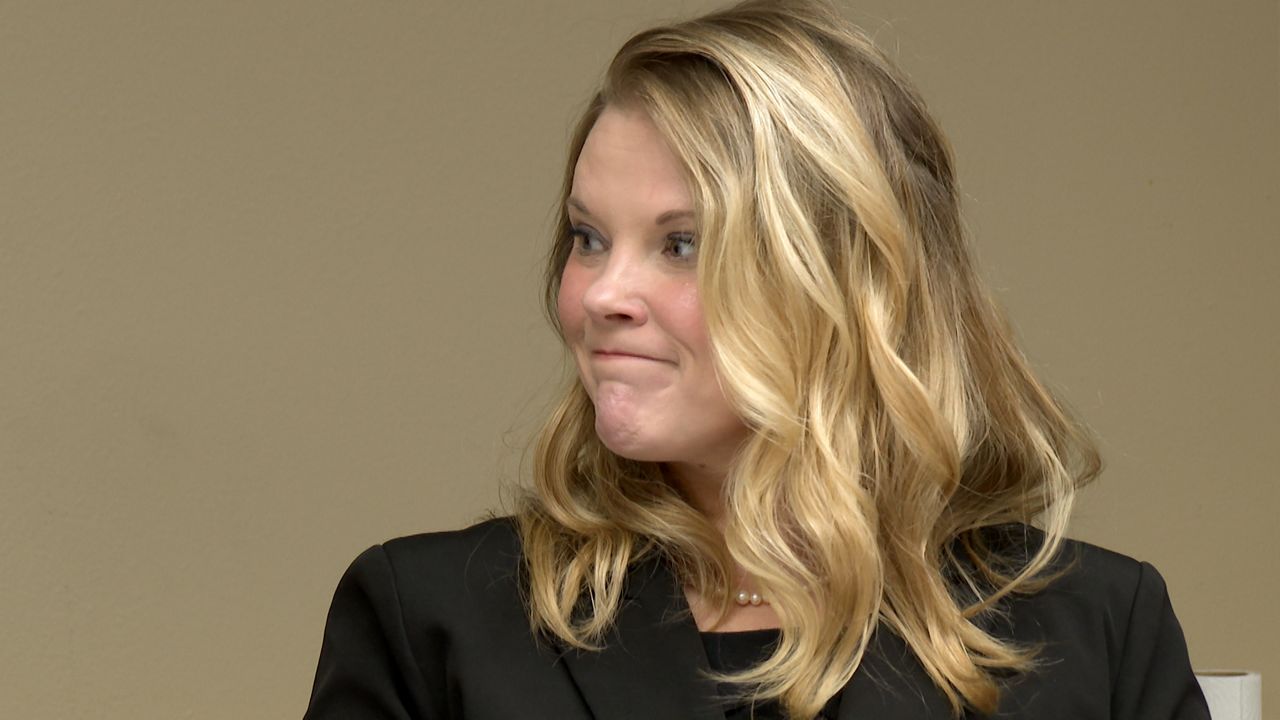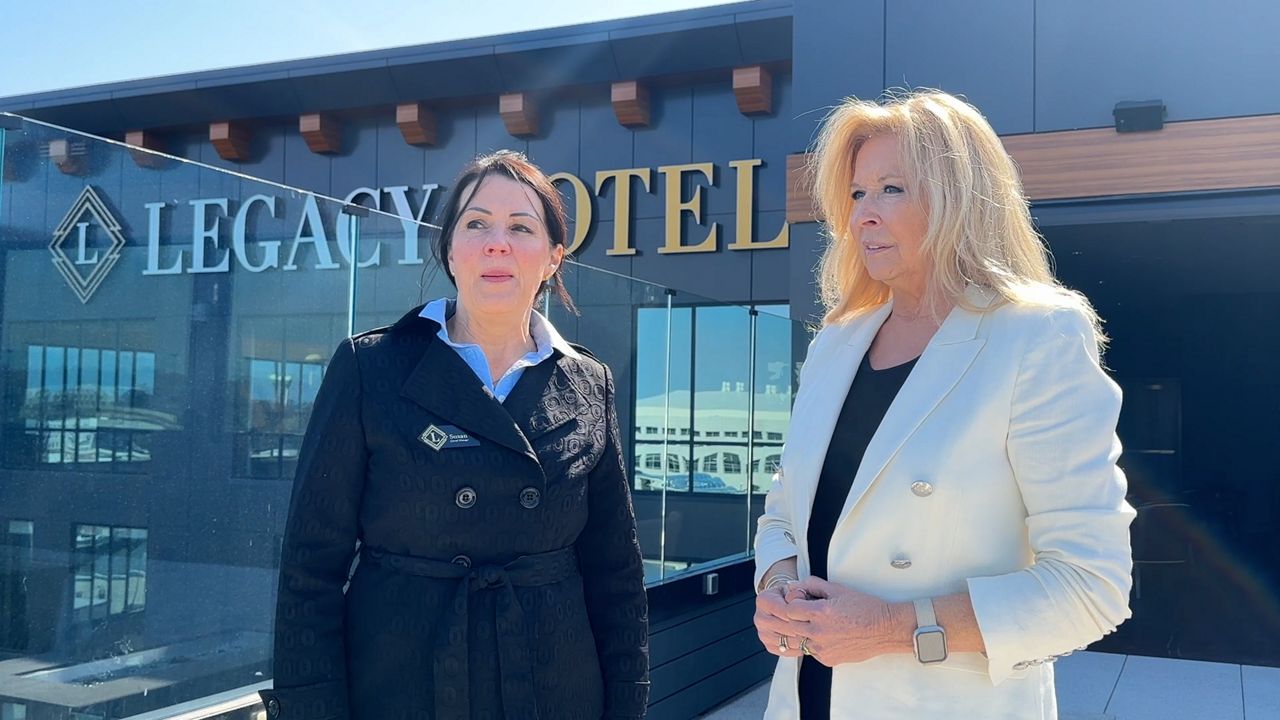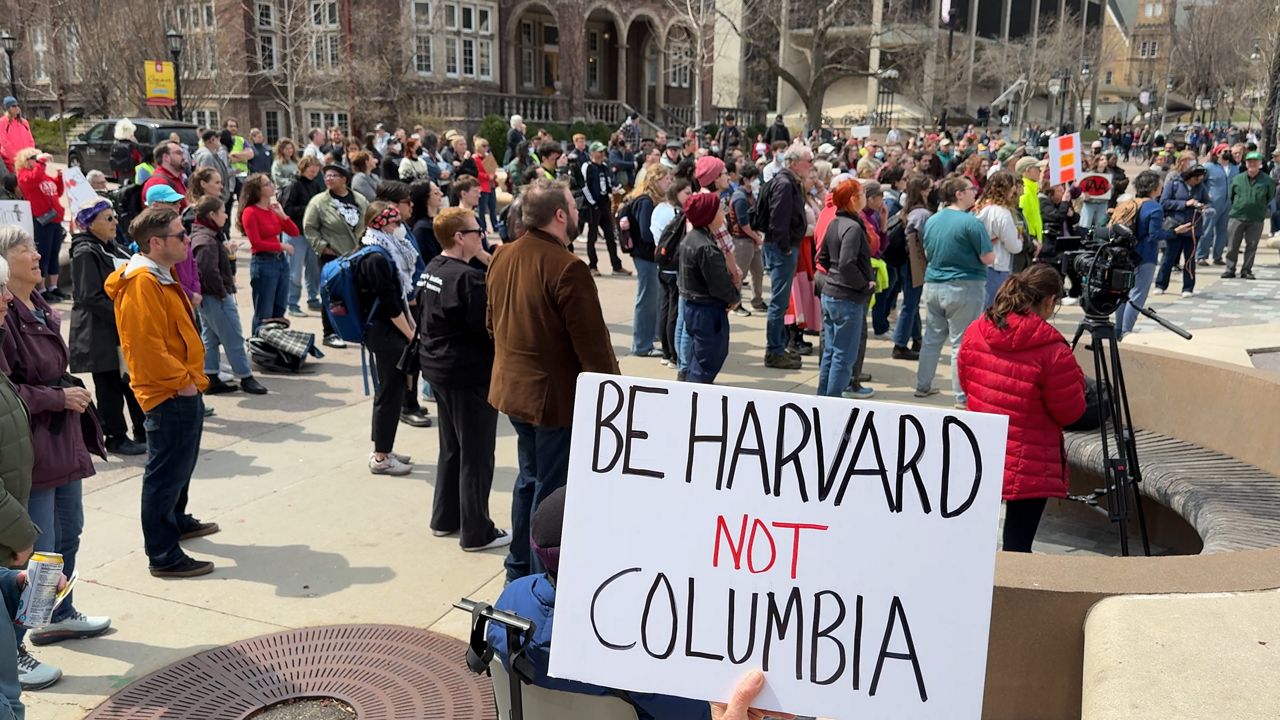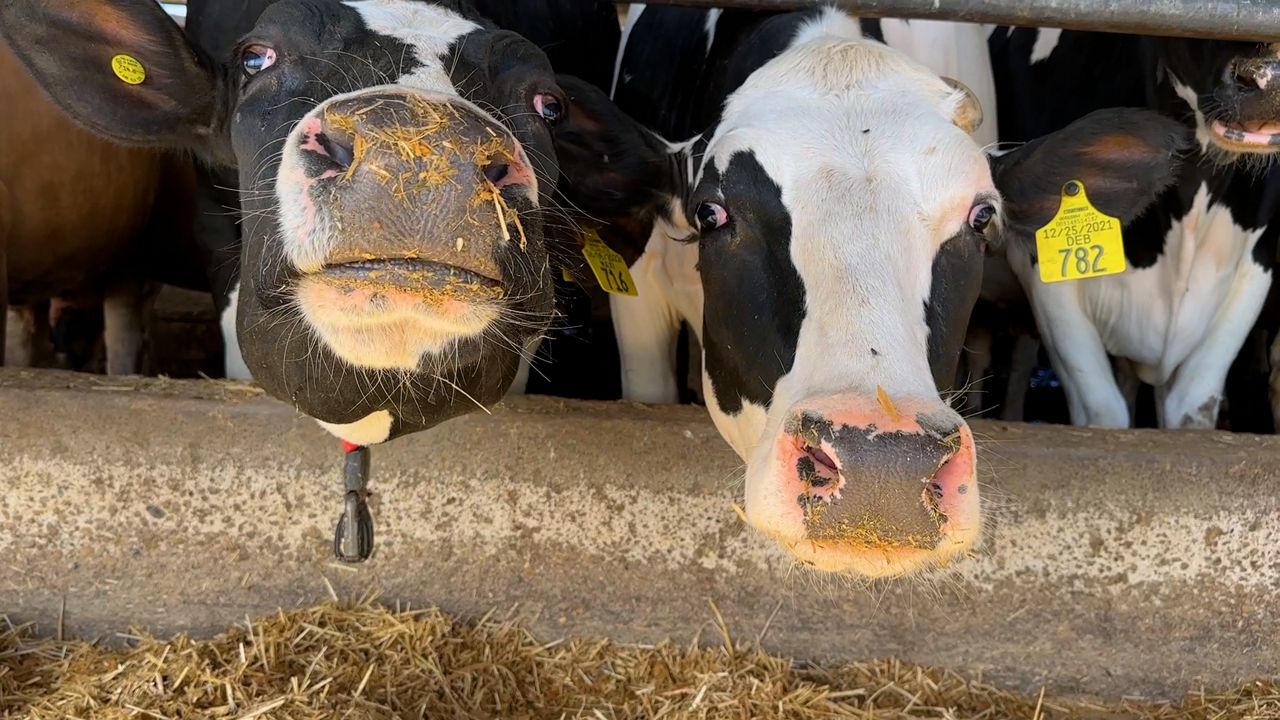MADISON, Wis. — In 2023, Sam Zimmermann was getting progressively sicker from polycystic kidney disease.
Polycystic kidney disease is an inherited disease that causes clusters of cysts to develop within the kidneys, causing them to enlarge and lose function.
His father and several other family members had struggled with the disease, but most of them needed transplants later in life. Zimmermann was only in his 40s. He searched for a donor as his kidney function began deteriorating.
“I wasn’t supposed to be this sick at this time of my life,” he said. “I knew I would need a transplant one day, but I didn’t expect to need one so soon.”
Nicole Knoblock, Zimmermann’s closest neighbor, separated by a mile of road in central Wisconsin, first learned about Zimmermann’s struggle with the disease in Jan. 2023. Knoblock felt compelled to find a solution to end her friend’s struggle.
Knoblock’s son convinced her to become a living kidney donor through the UW Health Transplant Center and the National Kidney Registry.
“He told me, ‘Mom, you gotta do what you gotta do to help someone,’ and I couldn’t argue with that,” she said. “It seemed like a one-in-a-million chance, but I did it.”
Although Knoblock was not an exact match, she still donated one of her kidneys to someone in need through a paired match. This moved Zimmermann closer to getting a new kidney from a donor who was a match.
There are more than 88,000 people in the nation who are in need of a kidney transplant.
“The National Kidney Registry enables us to expand the pool of potential recipients and allows for better matching and therefore lower risk of rejection,” said Scot Johnson, manager of living donation at the UW Health Transplant Center. “By donating a kidney to someone else on behalf of Sam, Nicole was able to significantly shorten his wait time for a living donor kidney that was a match.”
Knoblock is a special education teacher. By donating over the summer, she was able to recover before heading back to her classroom in the fall. On July 27, 2023, she donated her kidney and became the 4,000th living donor at the UW Health Transplant Center.
“I wasn’t thinking about the milestone; I was just so excited that I could go for a walk,” she said in a press release. “I was focused on my healing as well as when Sam would have his surgery.”
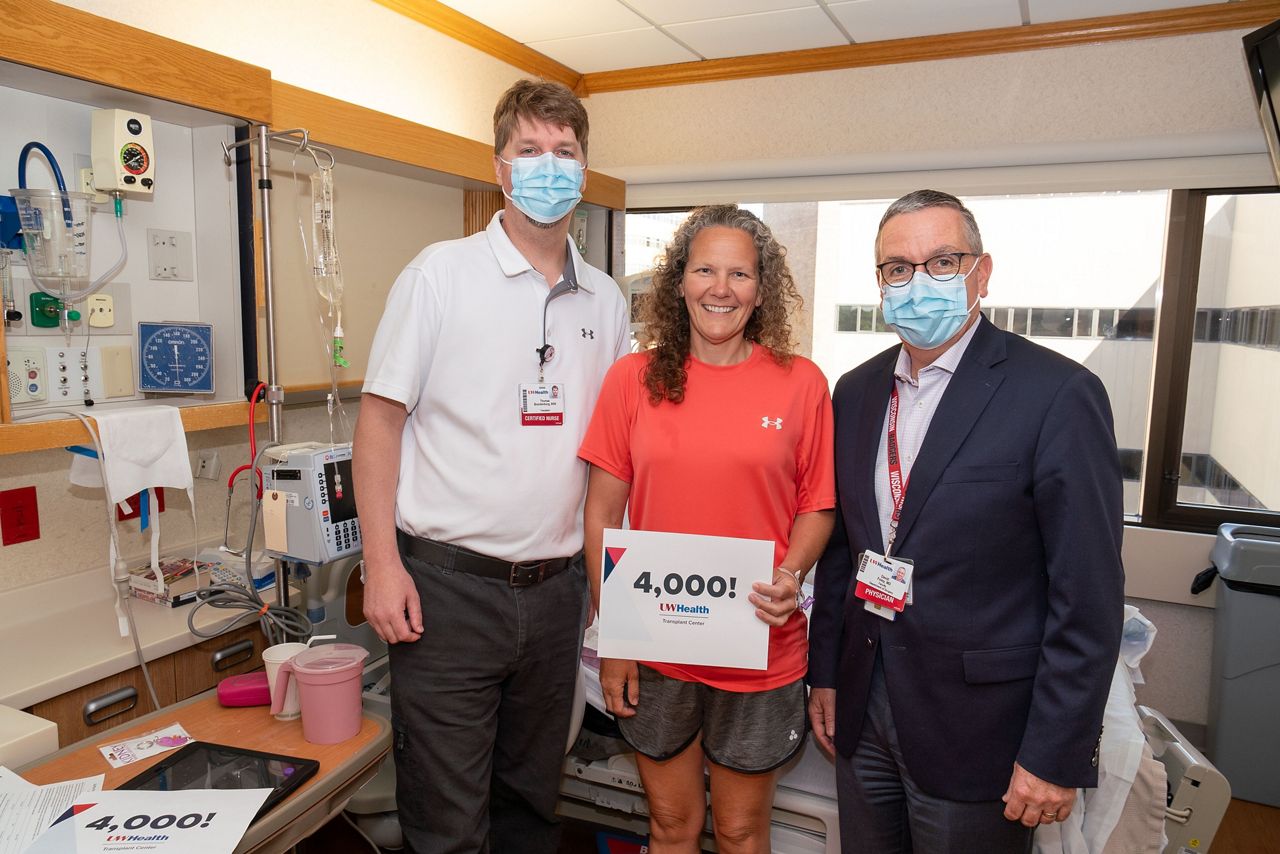
Knoblock said she is proud to be a living donor through UW Health — joining the ranks of thousands of others who have donated their kidney or part of their liver.
“There were 3,999 people who donated before me and I hope there are 3,999 people after me,” Knoblock said. “I was grateful to be able to help two people, both Sam and the person who received my kidney.”
Less than a week after Knoblock’s donation, Zimmerman learned that a match had been found for him. He had been undergoing dialysis since the spring.
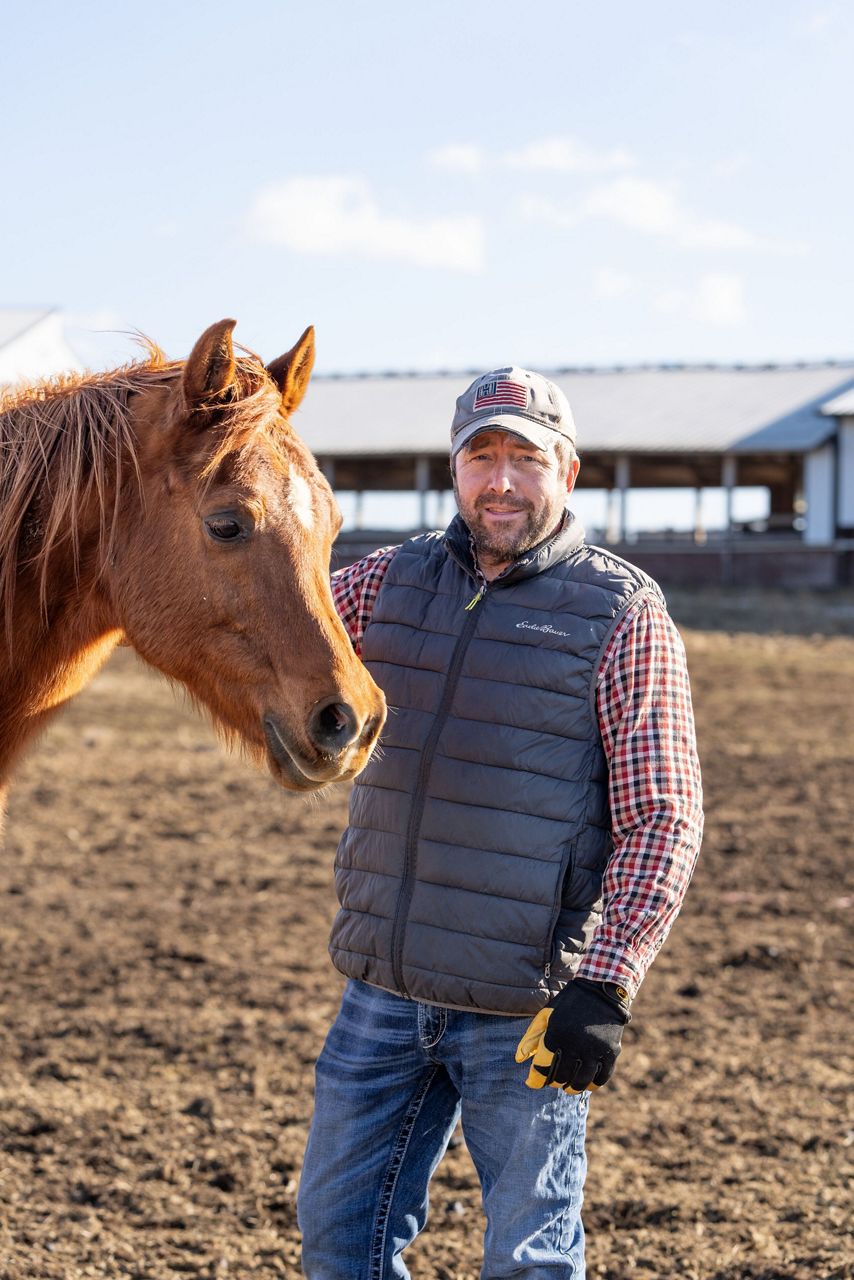
On Sept. 13, 2023, He received his kidney from another living donor.
“Sam’s enlarged kidneys were causing him significant discomfort and other problems,” said Dr. David Aufhauser, a transplant surgeon at UW Health and assistant professor of surgery at UW school of medicine and public health.
He performed Zimmermann’s transplant surgery, removing both of his old kidneys before transplanting the new one.
“While there is a longer recovery time from a dual surgery, we knew it would result in a meaningful increase in his quality of life,” Aufhauser added.
Earlier in the year, Zimmerman, a dairy farmer, had sold his 250 cows before his transplant because it was too difficult to manage. He began renting out his barns to another farmer. He was restricted to crop farming until he was better.
Two weeks after his transplant, he said he dreamed about the future.
“I started dreaming about the future again,” he said. “I picked up a farming magazine and flipped through it to get ideas to build my farm back up again.”
His will to dream and his plans for the future are possible because of Knoblock. The two had been friends before the kidney transplant, but they said now that connection has grown stronger.
“I am blessed to have her as a neighbor,” he said. “We will be family forever.”
April marks Donate Life Month. To learn more about living donors, click here.





